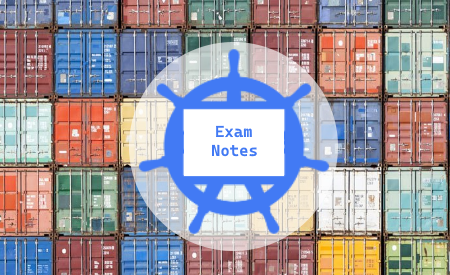CKA Exam Experience

A couple of weeks ago I managed to book, take and pass my CKA (Certified Kubernetes Administrator) Exam from the Linux Foundation. I wanted to share my experience to help anyone else preparing to take the exam.
1 - Secure Browser Installation
Similar to any of the Microsoft exams I have taken there is a secure browser that fills your screen, the download and installation was a little bit more manual. Either way ensure that you allocate a few minutes to download and set it up before your exam. Don’t expect to start immediately.
2 - Secure Browser Application Checks
The secure browser conducts checks for open applications like OneDrive, Dropbox, Edge, and Chrome. However, it offers the option to kill processes for you. Even with this, I still encountered a situation where I had to manually stop a Dropbox service.
3 - Local Environment Checks
Similar to the Microsoft Exams I have done in the past there are environment checks to ensure you are in a secure room with no aids or notes. You don’t supply photos of the room it is all done via the WebCam on your machine, so there was a bit more waving around.
4 - Electronic Devices
Similar to other certification exams, watches and phones are not allowed in the exam room. Make sure to keep these away to avoid any potential issues.
5 - Identity Checks
Be ready to present your ID to the webcam for verification. Ensure your camera can focus on the text properly. Again all the checks are done via the webcam not photos uploaded to a partner website.
6 - Screen Resolution Matters
I took the exam on a laptop with a 1080p resolution. Keep in mind that this might make the screen feel a bit cramped, especially with the question panel taking up space on the left. Familiarize yourself with this setup to maximize your efficiency. It is similar to some of the practice sites.
7 - Course Preparation
If you’ve enrolled in a Udemy course, rest assured that it covers all the areas tested in the CKA exam. Focus on strengthening your knowledge in less common areas to ensure for complete preparation.
8 - Time Management
Efficiency is crucial in the exam, and I managed to research and answer some questions on the spot. With access to the official Kubernetes documentation, it’s possible to spend time searching for unfamiliar information. Therefore, it’s important to allocate your time wisely between questions.
9 - Question Breakdown
The exam will have 15-20 questions on it, but handily the percentage breakdown provided in each question similar to the practice questions. Pay attention to this breakdown for a strategic approach. Especially when you are nearing the end of the exam.
10 - Primary Resource Links
While you have links to primary resource pages, be aware that you’ll still need to do some digging for specifics. These links open directly into the browser on the Linux RDP, streamlining the research process.
11 - Practice Tests
The free practice tests provided with the exam voucher closely mirror the exam experience. I found the practice exams tougher than the actual exam, which is also mentioned in the guidelines.
12 - Results Await
After completing the exam, brace yourself for a 24-hour wait. Unlike other proctored exams I have taken, the result is not instant. It took almost the full 24 hours for the result to appear in the exam portal.
In conclusion, the CKA exam is a nice exam that tests your practical knowledge of Kuberenetes. It is balanced well, you have enough time to answer everything and look things up if needed.